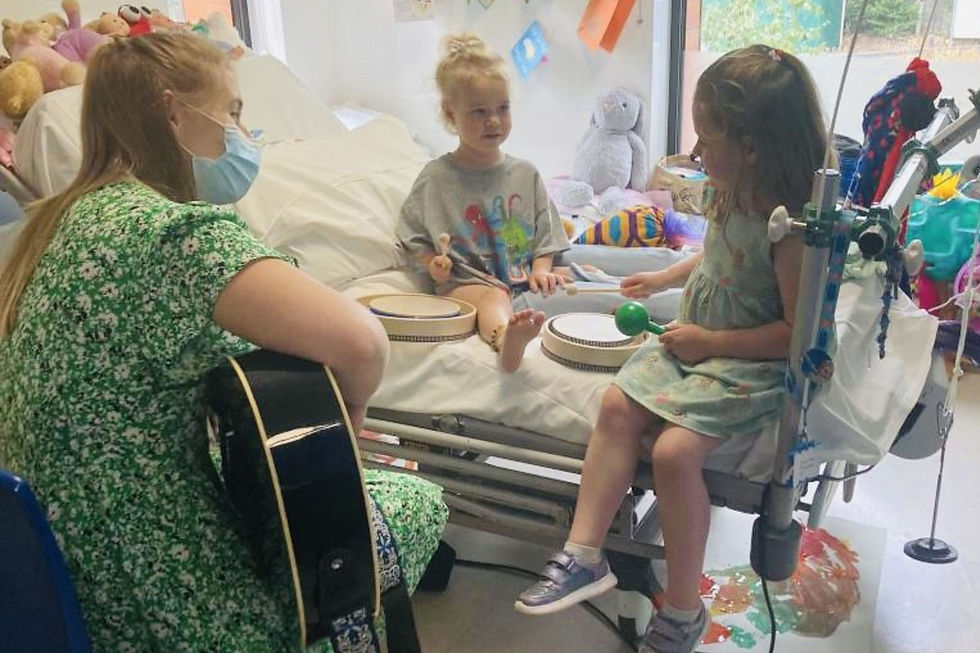Music Therapy
- imm music

- Aug 7, 2025
- 1 min read
Patient A is an 11 year old with severe anxiety and a possible eating disorder. A presented with shyness and tentativeness at first. A was in hospital for a month and had 4 music therapy sessions. It was thought that music therapy would provide a confidential space for self-expression and exploration.
During our sessions we explored the feeling of anxiety through song writing and playing the ukulele, kalimba and small percussion instruments. We sometimes improvised music together which was creative and spontaneous, and these interactions were like a musical conversation. A was keen to attend each week and expressed that music therapy provided space and a change of scenery.
A responded well to music therapy and we wrote several songs, putting words to difficult feelings and singing about them. This was therapeutic because it gave A acknowledgement and a way to express emotions without judgement.
It was recommended that A continue music therapy outside of hospital and a report and referral was written.




J'ai été particulièrement touché par la manière dont la musicothérapie a offert à la Patient A un espace confidentiel pour l'expression et l'exploration de ses émotions, notamment à travers l'écriture de chansons et l'improvisation. C'est un témoignage puissant de la capacité de la musique à créer un canal d'expression unique, permettant de verbaliser des sentiments complexes sans la pression du jugement, ce qui est souvent difficile à atteindre par d'autres moyens. En parlant d'improvisation et d'exploration instrumentale, il est fascinant de voir comment la technologie peut aujourd'hui étendre ces possibilités, offrant des moyens accessibles de s'engager dans la pratique musicale, même sans instruments physiques. Pour ceux qui souhaitent expérimenter la création rythmique et l'improvisation de manière ludique et accessible, mêm…